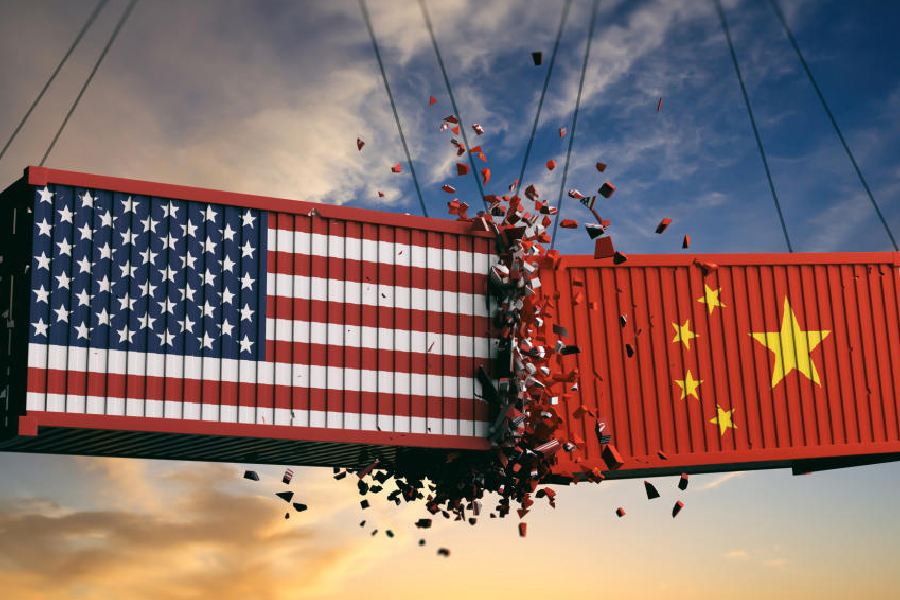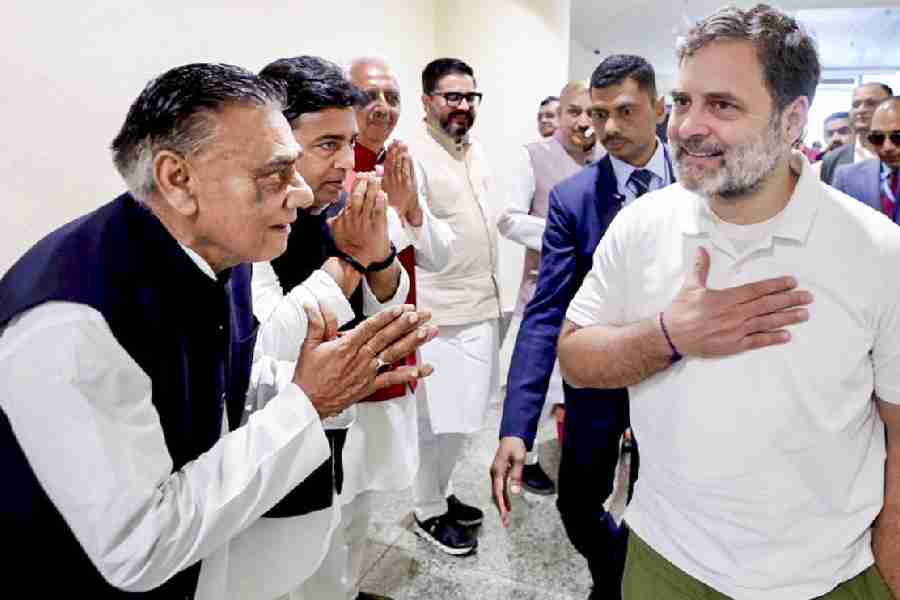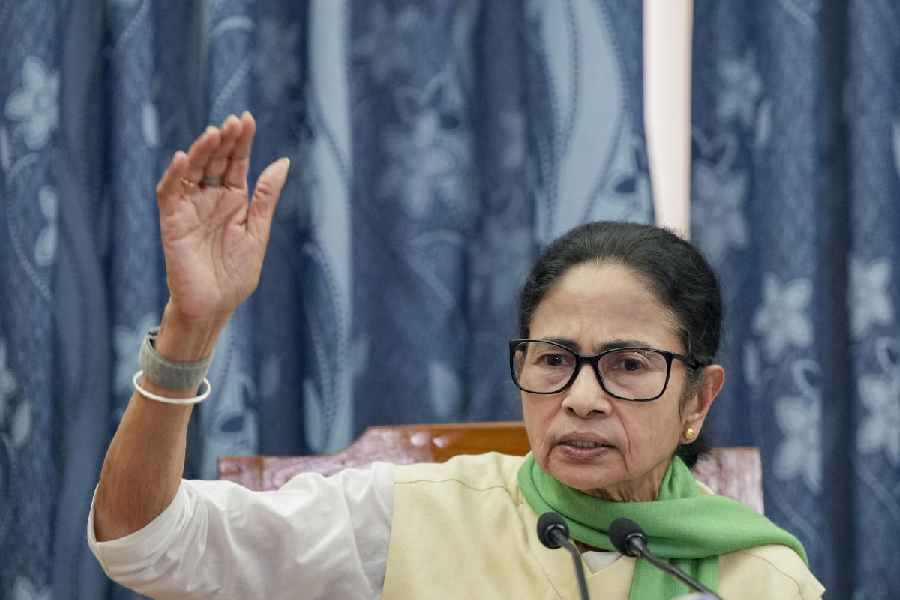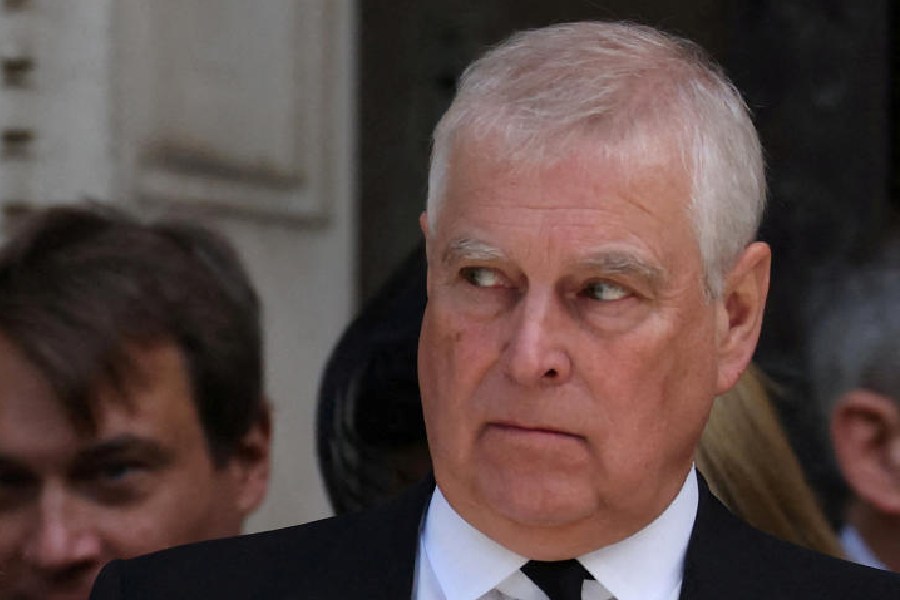The game of nerves between Washington and Beijing intensified with the United States imposing a 104 per cent tariff on China that will come into effect from Wednesday. The fresh salvo from President Donald Trump was in response to Beijing’s tit-for-tat retaliation against his earlier “reciprocal” levies.
The cumulative tariff of 104 per cent on Chinese products — effective tariff of 54 per cent levied earlier and another 50 per cent, which was announced on Tuesday — would mean more than doubling of the price of any product shipped from China to the US.
Trump, in a post on his Truth Social network, had hinted about this possibility on Monday. He had also said his administration would cancel negotiation talks that Chinese officials had requested regarding the tariffs.
With Trump finally walking the talk, a full-blown tariff war seems to have broken out between the two largest economies as China has given all indications of retaliation.
In a proof that the Communist Party’s official newspaper — which in a recent editorial declared that Beijing was no longer “clinging to illusions” of striking a deal — was right, the Chinese ministry of commerce shot back on Tuesday after Trump’s social media threat on Monday, which became a reality within a few hours.
“The US threat to escalate tariffs on China is a mistake on top of a mistake.... If the US insists on its own way, China will fight to the end,” it said in a statement on Tuesday.
Trade experts think that China will not take the fresh round of levies lightly and come up with a retaliatory response on Wednesday, which would further reduce possibilities of any reconciliation between Beijing and Washington.
Amid growing tensions between the countries, the Chinese authorities have been focusing on shielding the economy with a variety of measures, ranging from boosting domestic consumption to allowing the Yuan to devalue. The policymakers are also engaging with representatives of private Chinese companies, including Apple Inc supplier Goertek Inc to address their concerns.
China will hit back at new US tariffs with equivalent measures as any fresh US levies will add limited pain to the Asian nation, Ding Shuang, chief economist for Greater China & North Asia at Standard Chartered, was quoted in a Bloomberg report.
“The marginal effect of raising tariffs further from the existing level of about 65 per cent will shrink,” he said of additional US tariffs. “Most Chinese exports to the US have already been affected. For goods that are not price sensitive, tariffs won’t work no matter how high they go.”
China’s fast and hardline approach contrasted with more emollient moves by several other Asian countries such as Vietnam and Indonesia. Quoting unnamed sources, Bloomberg reported that Vietnamese deputy Prime Minister Ho Duc Phoc cancelled some engagements in New York on Monday to travel to Washington to hold meetings with senior US officials before Trump’s 46 per cent tariff on the country took effect at 12:01 am in Washington on Wednesday.
Similarly, there were reports that Indonesia, stung by a 32 per cent tariff, would send a team, comprising finance minister Sri Mulyani Indrawati and coordinating economic minister Airlangga Hartarto, to the US capital for trade talks next week.
Japan to negotiate
Japanese chief cabinet secretary Yoshimasa Hayashi said that the country’s economic revitalisation minister Ryosei Akazawa would lead tariff negotiations with the US.
While there are indications that the US is expected to prioritise Japan for negotiations on tariff, Trump rejected an European Union proposal to drop tariffs on all bilateral trade in industrial goods with the US, which meant that his 20 per cent tariff on all EU imports is due to come into force Wednesday.
Speaking at the White House on Monday, Trump said the offer from European Commission President Ursula von der Leyen is not enough to reset the trading relationship, reported Bloomberg.
“The European Union has been very bad to us,” he said. “We’re paying them to guard them militarily and they are screwing us on trade, so that’s not a good combination.”
Message to India
China has sent a message to New Delhi to stand together to overcome the difficulties.
“China-India economic and trade relationship is based on complementarity and mutual benefit. Facing the US abuse of tariffs, which deprives countries, especially Global South countries, of their right to development, the two largest developing countries should stand together to overcome the difficulties,” wrote Yu Jing, spokesperson of the Chinese Embassy in India, in a post on X.
The timing of the message to India is significant as New Delhi is trying to fastrack a bilateral trade agreement with the US. In her media post, she also mentioned China’s commitment to defend economic globalisation and multilateralism.
“We will continue to work with the rest of the world to safeguard the multilateral trade system with the World Trade Organisation (WTO) at its core,” she added.










